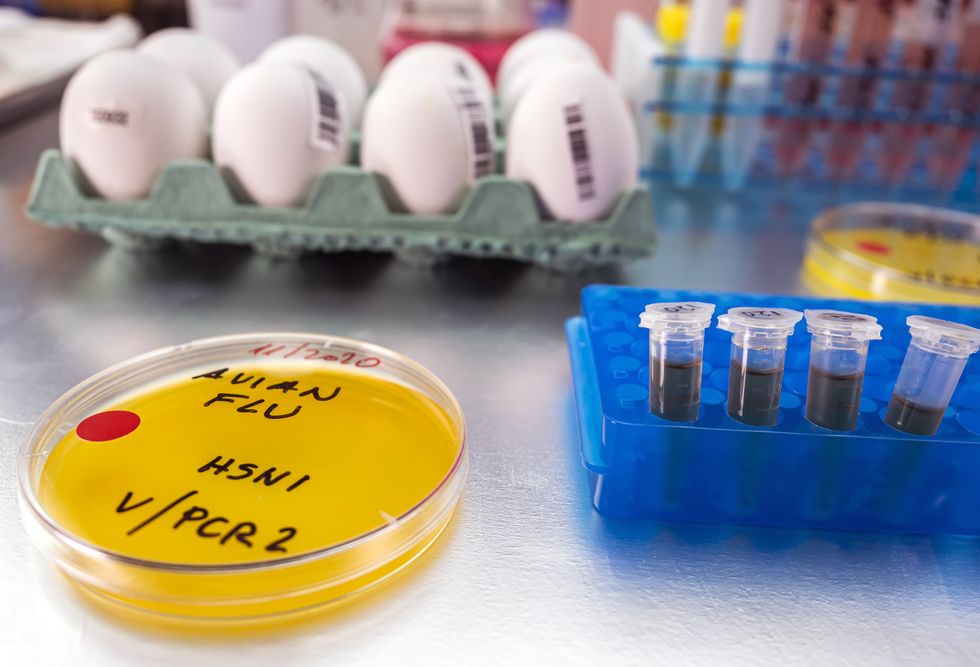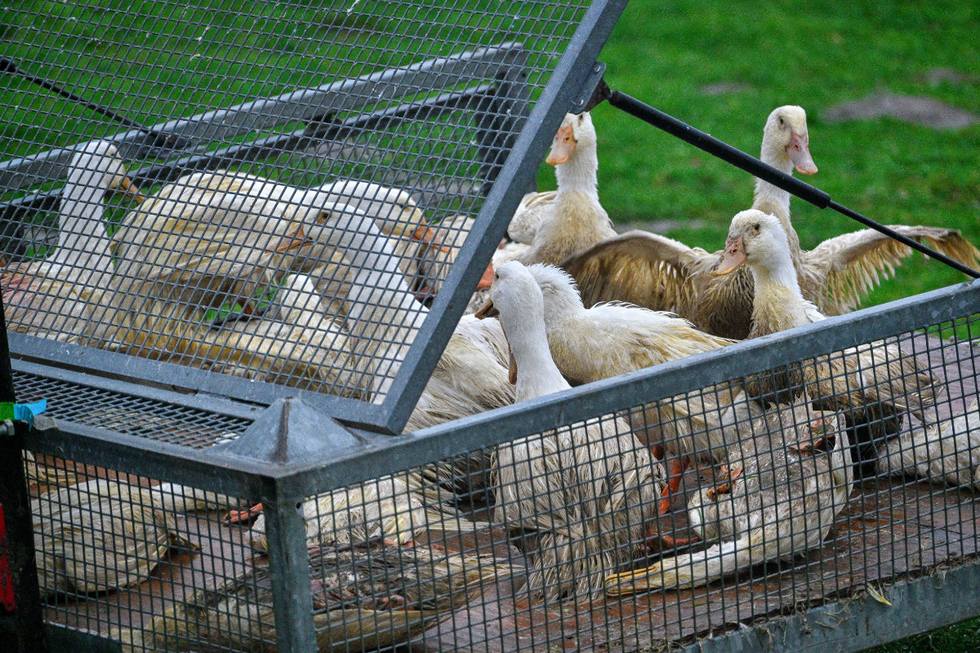An American has become the first recorded case of a bird flu death, health officials announced on Monday.
The patient had been hospitalised with severe respiratory symptoms before their death.
Louisiana health officials confirmed the death, although limited details about the individual have been disclosed.
However, they have revealed that the deceased individual was over 65-years-old and had underlying medical conditions.

A genetic analysis revealed the bird flu virus had mutated inside the patient, which might have led to the severity of their illness (Stock)
GETTY
The patient had been in contact with sick and dead birds from a backyard flock before falling ill.
A genetic analysis revealed the bird flu virus had mutated inside the patient, which might have led to the severity of their illness.
This case is the first human infection in the US linked to exposure to backyard birds, according to the Centers for Disease Control and Prevention.
Louisiana officials have confirmed they are not aware of any other cases in their state, while health authorities have found no evidence that the virus is spreading between people.
LATEST DEVELOPMENTS:
Since March, 66 confirmed bird flu infections have been reported across the United States.
Most previous cases have been mild, primarily affecting farmworkers who were exposed to sick poultry or dairy cows.
Two cases have remained unexplained, involving an adult in Missouri and a child in California, where health officials have not determined the source of infection.
The H5N1 bird flu virus has been spreading extensively among wild birds, poultry, cows and other animals across the country.

The H5N1 bird flu virus has been spreading extensively among wild birds, poultry, cows and other animals throughout the country (Stock)
GETTY
Health officials have warned that the virus’ growing presence in the environment increases the likelihood of human exposure.
As a result, officials have continued to advise those who handle sick or dead birds to take protective measures, including wearing respiratory protection, eye protection and gloves when handling poultry.
Health authorities are particularly focused on individuals who come into contact with sick or dead birds.
Safety recommendations include wearing appropriate protective equipment such as respiratory protection, eye protection and gloves when handling poultry.